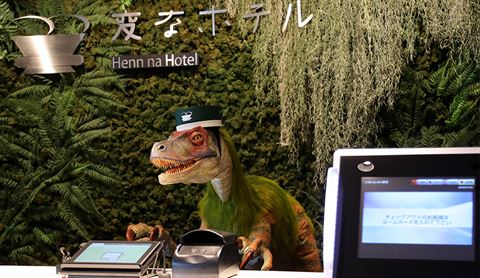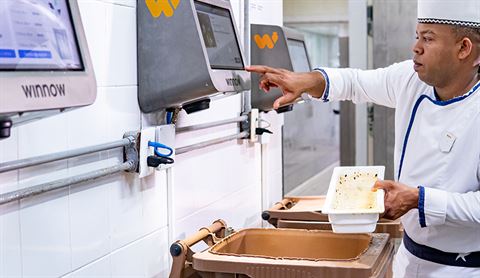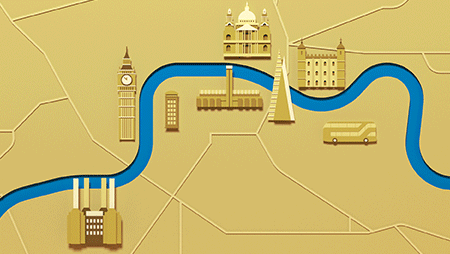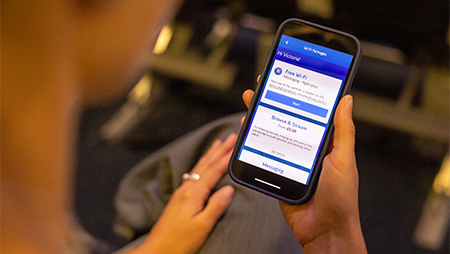June 2024
Travel in the age of AI
Al is the buzz word across every industry, and hospitality is no exception. But it doesn’t just mean droids at the front desk. Grace Browne uncovers the subtle, impactful changes the tech will bring to the customer experience
Following its release at the end of 2022, ChatGPT, the generative artificial intelligence programme built by OpenAl exploded in popularity and introduced Al to the masses. The buzz surrounding its launch quickly escalated, captivating the public imagination and sparking widespread interest in the technology. And the excitement and interest has only continued to mushroom. “This shift marks the most important technological breakthrough since social media,” declared Time magazine of generative Al in 2023.
No industry will be untouched by the Al revolution, from healthcare to education to finance - and the world of travel and hospitality is no exception. The integration of Al and machine learning stands to usher in a new era of efficient and bespoke travel experiences.
Artificial intelligence promises to revolutionise the way travellers interact with hospitality
A report from market research company IndustryARC estimates that the value of Al to the travel and hospitality industry could top £1bn by 2026. Another travel research group, Skift Research, believes it’s worth much more: that generative Al represents a whopping £22bn opportunity for the travel industry.
But how? Al is poised to make the travel experience more personalised to you, the traveller, than ever. According to Deloitte’s latest European Hospitality Industry Conference survey, half of the respondents, which included senior figures in the hospitality industry, saw the potential of generative Al to provide personalised customer support.
This enhanced level of individualised service promises to revolutionise the way travellers interact with hospitality, with experiences tailored to their niche preferences and needs. A crucial step to smoothing the transition to Al, however, will be ensuring that the tech enhances rather than replaces the human part of the customer experience.

Henn na Hotel, Tokyo, is staffed by robot dinosaurs
Travel is still an industry that relies on the personal touch. says Alex Cosmas, a partner at McKinsey, which recently published a report on how Al is positioned to transform the travel industry. “If done right, many Al insights will be delivered by humans —not machines,” he says. “Good Al will fuel the frontline workforce and turn them into superheroes.” Have a preference for checking out early? Al can catch that from your previous stays, and the front desk can anticipate that need. “We’ll see call centre agents, guest services, concierge staff augmented with propensity models in the background that give a steer to what a customer wants - and they’ll appear clairvoyant.”
Al is already being implemented in some futuristic ways. Hilton, for instance, trialled its own Al robot concierge developed by IBM, called Connie, first introduced at its McLean hotel in Virginia. This two-foot-tall humanoid android was designed to greet customers and answer their queries.
And many other hotels have deployed robot assistants. (This innovation has not been without its problems: the first hotel to hire mainly robot workers, Henn na in Tokyo, fired more than half of them in 2019 due to problems with them breaking down and irritating guests.)

How we are harnessing innovation within aviation
By Richard Anderson, British Airways’ Director of Global Operations
British Airways has 600 projects running to transform the business, underpinned by a £7bn investment programme to deliver them – it’s our largest ever modernisation investment. A significant part of that investment is in cutting-edge machine learning, automation and Al across operations, driving improvements from bookings to baggage handling and helping us cut cancellations and delays.
Our ‘Mission Control’ is a situational awareness tool encompassing real-time operational information from different sources, allowing better decision-making that will positively impact the business, our operation and our customers.
This includes tools predicting the likelihood of delays, allowing us to take pre-emptive action to reduce disruption to customers; interactive real-time weather apps; tech managing aircraft capacity and customer connections; and a system that collates the number of customers and bags being loaded onto flights in order to allocate the right number of baggage handlers to aircraft to get the job done as quickly as possible.
These tools are replacing time-consuming manual processes with tech-based solutions to ensure the right information is in the right place at the right time, and we’re starting to see some early signs of improvement in performance as a result of their introduction.
Al has also been put to use at Marriott International, which has implemented a food waste monitoring platform called Winnow. Every gramme of food wasted across all food outlets is measured and “gives our chefs a world of detailed information about exactly what food guests are eating - or not eating,” says Joanna Chugh, area vice president, UK, Ireland and Nordics, for Marriott International, which has implemented Winnow across more than 50 hotels in Europe. “The world of data means they can give their ordering, portions and cooking schedules a laser focus to predict exactly what will be needed and make sure we minimise waste and leftovers – which can then find new life with creative new recipes.”

Marriott International aims to reduce food waste by 50%
Yet the integration of Al’s many uses may not be a totally seamless process. The cost of implementation, for one, is still a barrier. Another risk is making sure the customer experience is not affected by the rollout. Al-powered chatbots can provide instantaneous help with customer queries and routine tasks round the clock. But if requests get more complicated, the human touch will still be needed. Another concern is surrounding data protection and security. On the flip side, Al may also be used to ensure the safety and security of travellers, says Leila Jiwnani, a director in hospitality and leisure at Deloitte. “Al can be used for predictive analytics, fraud detection and supply chain optimisation, among other things,” she says.
As Al becomes more seamlessly integrated into the travel experience, it has the potential to elevate customer service to new heights, creating memorable and tailored interactions for every guest. But most jobs in the industry probably won’t be replaced by a robot any time soon, says Jiwnani. “While Al is advancing rapidly, it is nowhere near replacing human contact,” she says.
Cosmas concurs: “The trick for travel suppliers leveraging Al will be in preserving the magic of travel - the elements of human touch that we want - while improving on the less desirable elements.”
This article has been tagged Technology
More from previous issues

Malmö: a pocket guide to Sweden’s city of culture
It’s the city on everybody's lips: here’s our local’s pocket guide to Malmö, Sweden

An aviation lover’s guide to London
We’re searching for treasure in this spotlight on the capital’s lesser-known AV treasures, including a map of where to find them

Our £7bn transformation plan revealed
It’s the investment you’ve all been waiting for: new lounges, a much-improved app, a road map to sustainable fuel, free Wi-Fi and more

Behind the wheel with Sara Davies
BBC Dragon and Geordie entrepreneur Sara Davies MBE reveals the UK road that rivals Route 66

